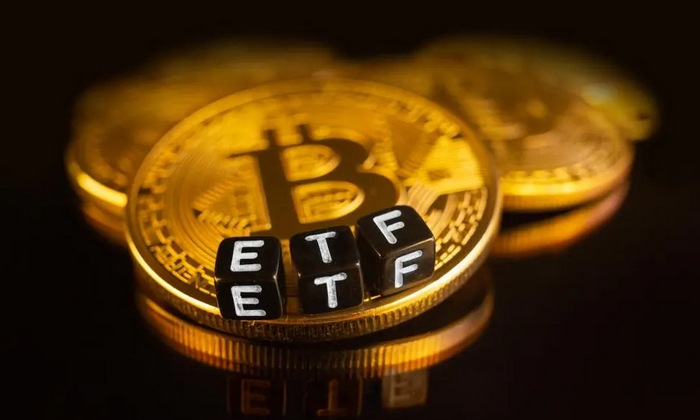-
 Bitcoin
Bitcoin $85,667.5889
1.45% -
 Ethereum
Ethereum $1,645.0464
1.09% -
 Tether USDt
Tether USDt $0.9999
0.01% -
 XRP
XRP $2.1508
1.30% -
 BNB
BNB $589.4345
-0.06% -
 Solana
Solana $131.4976
-0.50% -
 USDC
USDC $0.9999
0.00% -
 TRON
TRON $0.2514
-1.73% -
 Dogecoin
Dogecoin $0.1601
-2.43% -
 Cardano
Cardano $0.6447
0.89% -
 UNUS SED LEO
UNUS SED LEO $9.4306
0.49% -
 Chainlink
Chainlink $12.7413
0.32% -
 Avalanche
Avalanche $20.0223
0.06% -
 Stellar
Stellar $0.2413
0.24% -
 Toncoin
Toncoin $2.9581
4.42% -
 Sui
Sui $2.2029
-2.07% -
 Shiba Inu
Shiba Inu $0.0...01196
-1.39% -
 Hedera
Hedera $0.1666
0.16% -
 Bitcoin Cash
Bitcoin Cash $335.2737
-1.78% -
 Litecoin
Litecoin $78.2670
0.57% -
 Polkadot
Polkadot $3.6968
1.17% -
 Hyperliquid
Hyperliquid $16.3661
2.35% -
 Dai
Dai $1.0000
0.00% -
 Bitget Token
Bitget Token $4.3524
2.42% -
 Pi
Pi $0.7432
-1.22% -
 Ethena USDe
Ethena USDe $0.9990
0.02% -
 Monero
Monero $212.4190
2.42% -
 Uniswap
Uniswap $5.4203
0.01% -
 OKB
OKB $52.2810
-1.31% -
 Pepe
Pepe $0.0...07441
0.12%
how to trade bitcoin etf
To trade bitcoin ETFs, start by selecting a reputable broker, opening an account, funding it, researching ETFs, placing an order, and consistently monitoring your investment.
Oct 28, 2024 at 01:16 pm

How to Trade Bitcoin ETFs
1. Choose a Broker
- Select a reputable broker that offers bitcoin ETFs.
- Consider factors such as fees, trading platforms, and customer support.
2. Open an Account
- Create an account with your chosen broker.
- Provide personal information, such as your name, address, and Social Security number.
3. Fund Your Account
- Deposit funds into your brokerage account through bank wire, ACH transfer, or other methods.
- Determine the amount you want to invest in bitcoin ETFs.
4. Select an ETF
- Research different bitcoin ETFs available on your broker's platform.
- Consider factors such as expense ratio, underlying index, and trading volume.
5. Place a Trade
- Once you have selected an ETF, you can place a buy or sell order.
- Specify the quantity of shares you wish to trade.
6. Monitor Your Investment
- Track the performance of your bitcoin ETF regularly.
- Consider adjusting your investment strategy based on market conditions.
Additional Tips:
- Understand the risks: Bitcoin ETFs are still relatively new and involve risk.
- Diversify your portfolio: Do not invest all of your funds in a single bitcoin ETF.
- Use limit orders: Limit orders allow you to set a specific price at which to buy or sell, minimizing potential losses.
- Consider fees: Pay attention to the expense ratio and trading fees associated with bitcoin ETFs.
- Secure your account: Protect your brokerage account by using strong passwords and enabling two-factor authentication.
Disclaimer:info@kdj.com
The information provided is not trading advice. kdj.com does not assume any responsibility for any investments made based on the information provided in this article. Cryptocurrencies are highly volatile and it is highly recommended that you invest with caution after thorough research!
If you believe that the content used on this website infringes your copyright, please contact us immediately (info@kdj.com) and we will delete it promptly.
- Galaxy Digital's $40M Ethereum Transfer Raises Eyebrows as Market Reacts
- 2025-04-15 16:00:12
- Publicly Listed Companies Increased Their Bitcoin Holdings by 16.1% in Q1 2025
- 2025-04-15 16:00:12
- Bitcoin Has Rebounded Spectacularly This Week, Trading Close to $85,000
- 2025-04-15 15:55:13
- Galaxy Digital Deposits 25,000 ETH, Raising Questions About Market Intentions
- 2025-04-15 15:50:12
- Mantra Has Just Gone Through A Crash That Has Wiped Out Most Of Its Value. Here's How On-Chain Metrics Have Changed During This Collapse.
- 2025-04-15 15:50:12
- Michael Saylor Does It Again: Strategy (Formerly MicroStrategy) Buys 3,459 BTC
- 2025-04-15 15:45:13
Related knowledge

What is the difference in returns between long-term holding of a Bitcoin ETF and holding Bitcoin directly?
Apr 09,2025 at 04:15am
When considering the difference in returns between long-term holding of a Bitcoin ETF and holding Bitcoin directly, it's essential to understand the nuances and factors that affect each investment option. Both approaches have their unique advantages and potential drawbacks, which can significantly impact the overall returns over time. Understanding Bitc...

How is the "roll cost" of a futures Bitcoin ETF generated?
Apr 08,2025 at 01:22pm
The 'roll cost' of a futures Bitcoin ETF is a critical concept for investors to understand, as it directly impacts the performance of the ETF. In this article, we will delve into the mechanics of how the roll cost is generated, exploring the underlying processes and factors that contribute to this cost. Understanding Futures ContractsFutures contracts a...

How can the premium or discount of a Bitcoin ETF be narrowed through an arbitrage mechanism?
Apr 09,2025 at 12:07am
Arbitrage mechanisms play a crucial role in narrowing the premium or discount of a Bitcoin Exchange Traded Fund (ETF). Understanding how these mechanisms work can provide valuable insights into the dynamics of Bitcoin ETFs and their relationship with the underlying asset. This article will delve into the specifics of how arbitrage can be used to align t...

What factors affect the bid-ask spread of a Bitcoin ETF?
Apr 08,2025 at 08:50pm
The bid-ask spread of a Bitcoin Exchange Traded Fund (ETF) is a critical metric that investors and traders closely monitor. It represents the difference between the highest price a buyer is willing to pay (bid) and the lowest price a seller is willing to accept (ask). Several factors influence this spread, and understanding them can help investors make ...

How is the seed capital of a Bitcoin ETF used?
Apr 10,2025 at 02:15pm
The seed capital of a Bitcoin ETF plays a crucial role in the establishment and operation of the fund. This initial investment is used to create the fund's underlying assets, manage operational costs, and ensure the ETF can start trading on an exchange. Understanding how this seed capital is utilized provides insight into the mechanics of Bitcoin ETFs a...

What is the difference between "physically backed" and "synthetic" Bitcoin ETFs in terms of holding assets?
Apr 10,2025 at 04:56pm
Bitcoin Exchange Traded Funds (ETFs) have become a popular way for investors to gain exposure to the cryptocurrency market without directly owning the underlying asset. There are two primary types of Bitcoin ETFs: physically backed and synthetic. Understanding the differences between these two types, particularly in terms of how they hold assets, is cru...

What is the difference in returns between long-term holding of a Bitcoin ETF and holding Bitcoin directly?
Apr 09,2025 at 04:15am
When considering the difference in returns between long-term holding of a Bitcoin ETF and holding Bitcoin directly, it's essential to understand the nuances and factors that affect each investment option. Both approaches have their unique advantages and potential drawbacks, which can significantly impact the overall returns over time. Understanding Bitc...

How is the "roll cost" of a futures Bitcoin ETF generated?
Apr 08,2025 at 01:22pm
The 'roll cost' of a futures Bitcoin ETF is a critical concept for investors to understand, as it directly impacts the performance of the ETF. In this article, we will delve into the mechanics of how the roll cost is generated, exploring the underlying processes and factors that contribute to this cost. Understanding Futures ContractsFutures contracts a...

How can the premium or discount of a Bitcoin ETF be narrowed through an arbitrage mechanism?
Apr 09,2025 at 12:07am
Arbitrage mechanisms play a crucial role in narrowing the premium or discount of a Bitcoin Exchange Traded Fund (ETF). Understanding how these mechanisms work can provide valuable insights into the dynamics of Bitcoin ETFs and their relationship with the underlying asset. This article will delve into the specifics of how arbitrage can be used to align t...

What factors affect the bid-ask spread of a Bitcoin ETF?
Apr 08,2025 at 08:50pm
The bid-ask spread of a Bitcoin Exchange Traded Fund (ETF) is a critical metric that investors and traders closely monitor. It represents the difference between the highest price a buyer is willing to pay (bid) and the lowest price a seller is willing to accept (ask). Several factors influence this spread, and understanding them can help investors make ...

How is the seed capital of a Bitcoin ETF used?
Apr 10,2025 at 02:15pm
The seed capital of a Bitcoin ETF plays a crucial role in the establishment and operation of the fund. This initial investment is used to create the fund's underlying assets, manage operational costs, and ensure the ETF can start trading on an exchange. Understanding how this seed capital is utilized provides insight into the mechanics of Bitcoin ETFs a...

What is the difference between "physically backed" and "synthetic" Bitcoin ETFs in terms of holding assets?
Apr 10,2025 at 04:56pm
Bitcoin Exchange Traded Funds (ETFs) have become a popular way for investors to gain exposure to the cryptocurrency market without directly owning the underlying asset. There are two primary types of Bitcoin ETFs: physically backed and synthetic. Understanding the differences between these two types, particularly in terms of how they hold assets, is cru...
See all articles























































































